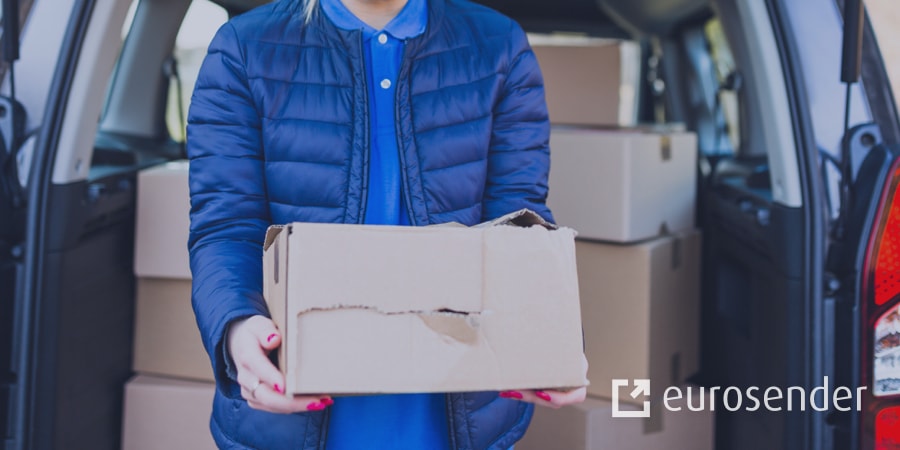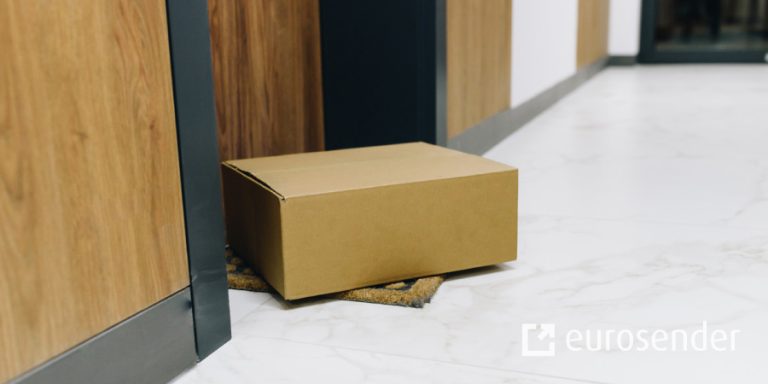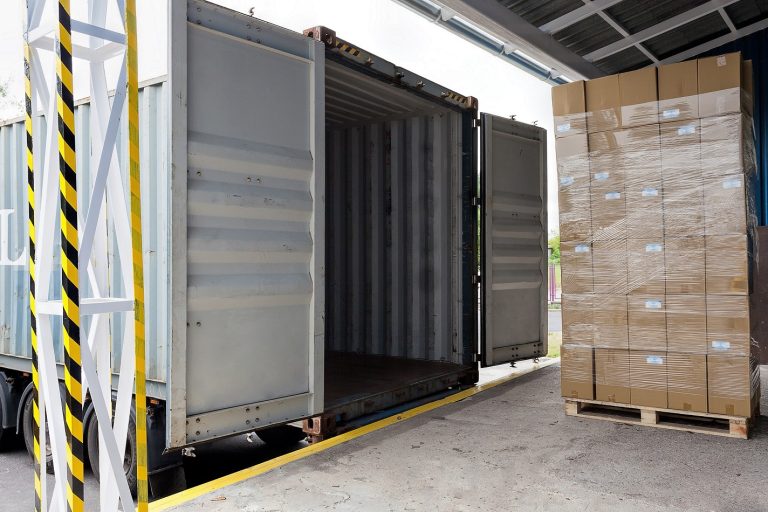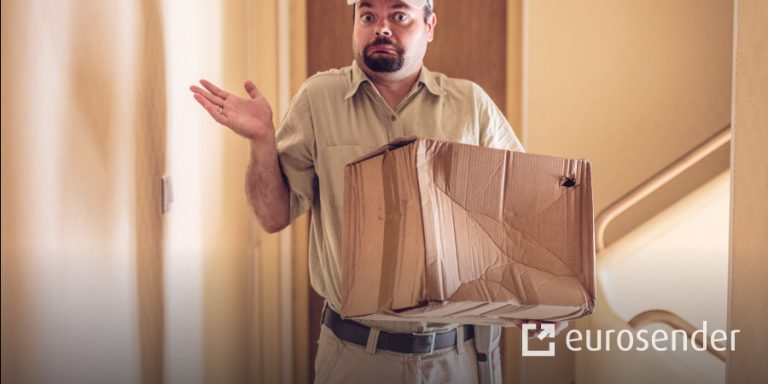The Courier Damaged the Goods During Delivery. What Now?
TL;DR
- When your package arrives damaged, ask the courier to file a damage report, inspect the package, take photos, and file a claim.
- If you notice damage after opening, contact the courier immediately, share detailed photos, and begin the claims process.
- The courier is typically responsible for damages, unless the packaging was insufficient or improper, in which case the sender may be at fault.
- To prevent damage, use sturdy packaging materials, protect each item individually, and fill empty spaces to prevent movement. Consider adding shipping insurance.
Even though it is not such a typical situation, the goods you have shipped might get damaged during transport. Read more about the most common causes of damage during transport and what to do when the courier damaged the goods in the package.
Create an account for free!
What to do if the courier delivers the package damaged?
On the rare occasion that your package arrives with signs of loss or damage, we strongly recommend opening it while the driver is still present. In case of damaged delivery of the parcel, follow these steps:
- Ask the courier to fill out a damage report upon delivery.
- Inspect the package and document the damage with photographs or videos.
- File a damage claim procedure, providing all the required information.
- Stay in contact with the carrier or logistics provider for updates about your claim.
For more details on what to do in case a parcel is delivered damaged, read our page dedicated to damage report.
What if I notice that the courier damaged my goods only after opening the parcel?
If you open the parcel and find out that the courier damaged your goods, you should immediately inform the logistics provider.
Take photos of the damages as soon as you discover them, and contact the courier provider immediately via email or give a phone call to the courier company.
How do I complain about a damaged parcel?
To file a complaint about a damaged parcel you need to inform the courier about the damages immediately. You will need to provide all the information about the parcel and the damages in order to start a claim procedure.
If you booked a shipment with Eurosender and you noticed the courier damaged your goods, all you have to do is contact our specialists and we will help you start the claim procedure.
Who is responsible in case of damaged parcels?
The carrier is responsible for any damage or loss incurred during the transport. The courier may not be responsible for damages in case of insufficient or improper packaging and protection.
Always make sure to follow our packing guides to protect your items properly.
You may be interested in:
- Who is responsible for a damaged or lost parcel
- What to do when my package is lost
- What to do when items are missing from the parcel
Why was the package damaged in transit?
There are many possible reasons why a parcel gets damaged during transport. The most common reasons for damages to the packages are the following:
- Poor packaging – Insufficient protection is one of the main reasons why a package gets damaged.
- Weather and/or humidity – Extreme weather conditions or exposure to humidity can affect the integrity of the parcel or its content.
- Perishable goods – Sending food or other perishable items is at high risk of damage and infestation. That’s why sending such items has specific restrictions.
- Other packages – Leakage or contamination from other parcels can cause damage to the packages in contact with or transported in the same vehicle.
- Human or machine error – Mistakes in sorting the parcel or errors in the phases of loading/unloading can result in some damages, for example, due to an accidental fall.
- Road condition/unsafe driving – Bad road conditions or unsafe driving from the courier can cause excessive movements of the cargo, with a higher risk of damage to the box or its content.
What can I do to prevent the parcel from being damaged in transit?
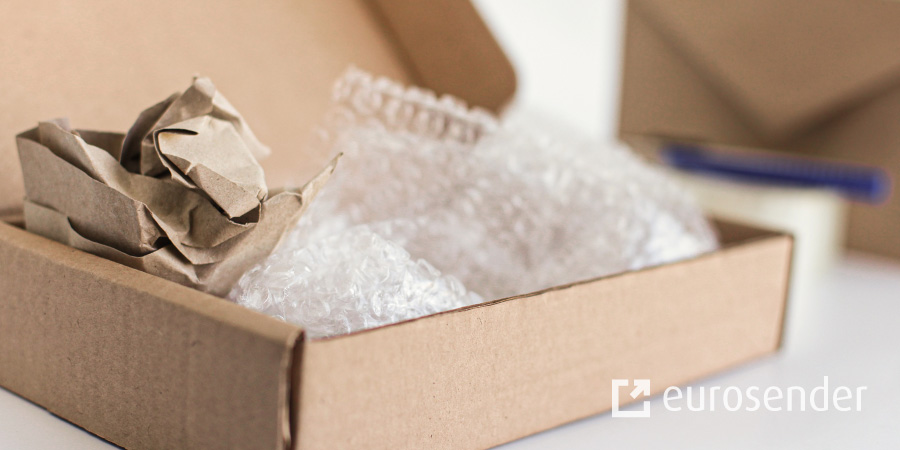
Follow these tips to prevent parcel damage and ensure the goods are travelling safely.
- Use proper packaging material – Pick a sturdy cardboard box to offer strong external protection, and use abundant packaging material, like bubble wrap, to protect each item.
- Pack the items correctly – Always protect each item individually, wrapping them with bubble wrap or other protective material. Check out our packing guides.
- Do not leave empty spaces inside the box – Fill the parcel with cushioning material to avoid the items moving inside the box during the transit and getting damaged.
- Pick a good and reliable courier – Choose a courier with experience and quality services. If you are not sure which courier is better for you, use online comparison tools.
- Purchase insurance – Shipping insurance will avoid your money loss in the unfortunate case of your parcel being damaged in transit.
You may also be interested in:
- Is it worth it to get shipping insurance?
- Can I get compensated for a late delivery?
- The parcel was marked as delivered, but it was not received
Who is responsible for a damaged package in case of online purchase?
In case of parcels or items damaged during transit and bought online, the responsibility is always on the seller, unless different agreements are made. It is the responsibility of the seller to claim the damages to the courier, if he causes them, or pay for the damaged goods.
How do e-commerce shops handle parcels that are delivered damaged?
In the case of e-commerce, a parcel damaged in transit can lead to a bad customer experience or a loss. That’s why it’s fundamental to follow all the good practices to reduce the risk of damages to a minimum.
In the unfortunate situation of packages damaged in transit even when properly packed, a good idea would be to offer your clients return services free of charge.
When you need to pick the best courier for your e-commerce, consider the Eurosender online tool, with instant quotes for every type of shipment, including parcel returns.
Still have questions?
Check our articles that answer the most common questions about shipping.
Create an account for free!
About the author
